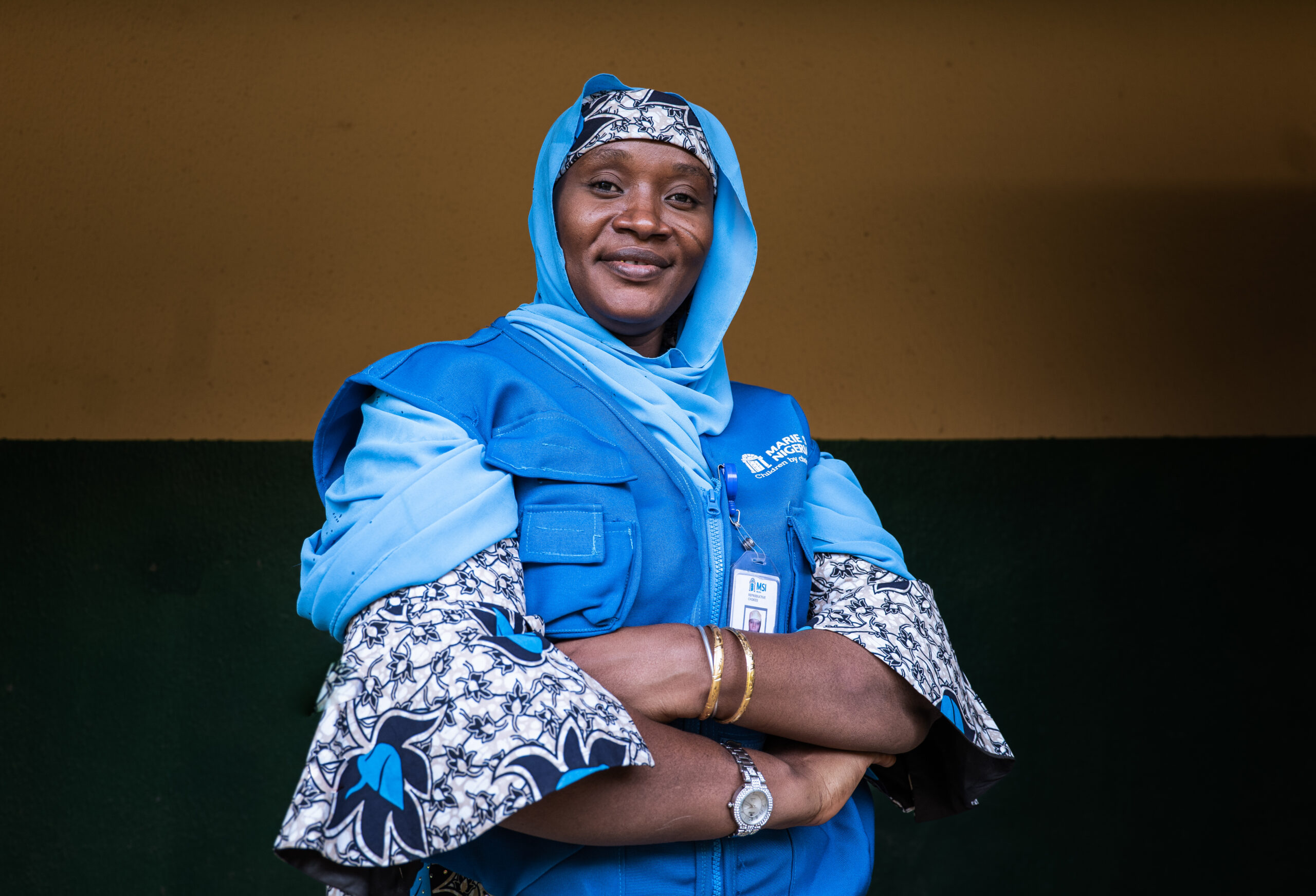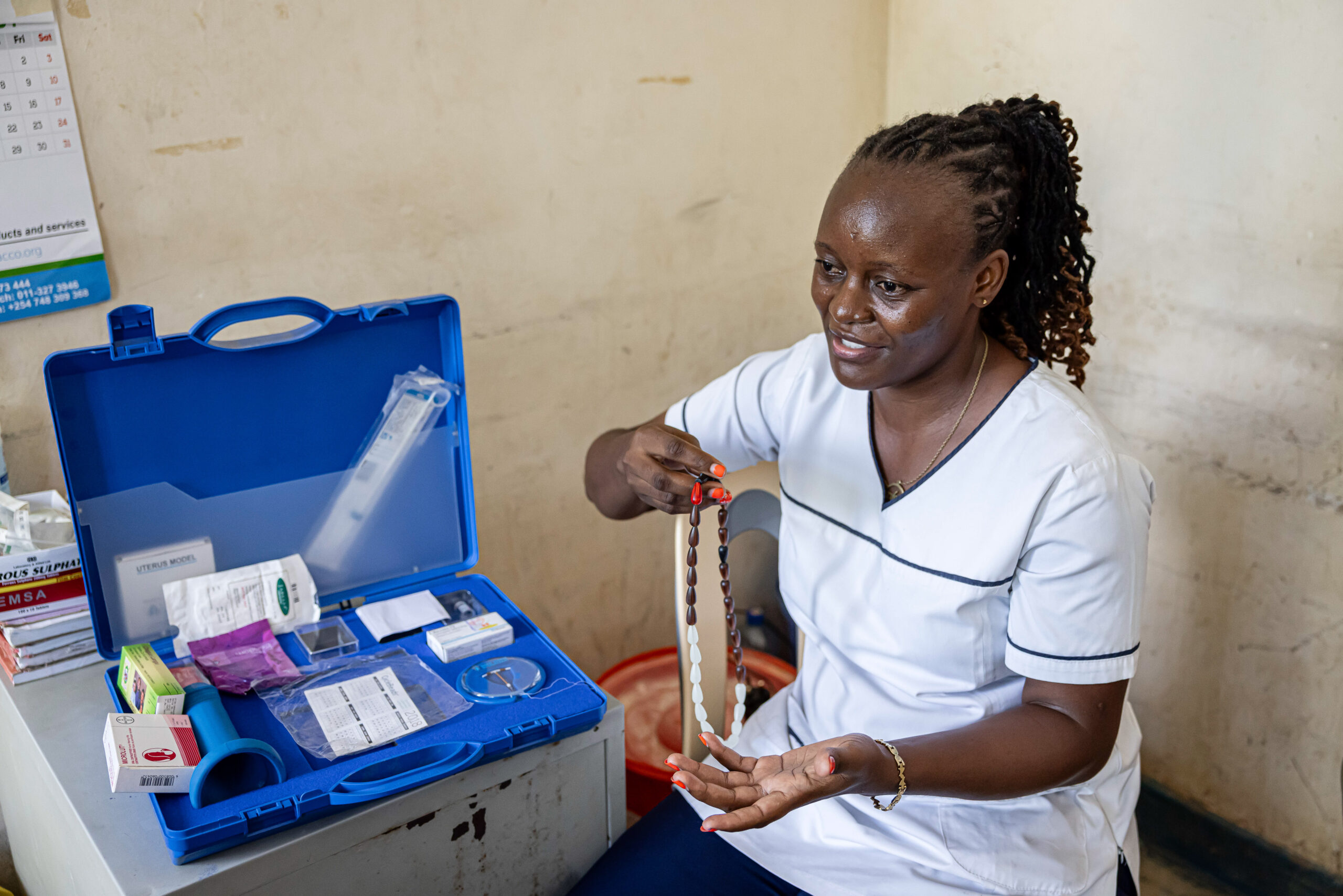1.9M women and girls worldwide have lost access to our contraception and safe abortion services due to COVID-19
London – Wednesday, 19th August 2020: MSI reveals new data showing that 1.9 million[i] women and girls have lost access to its contraception and safe abortion services in the first half of 2020 due to the COVID-19 pandemic.
Across the 37 countries where it works, MSI estimates that the loss of its services between January and June will lead to:
- 900,000 additional unintended pregnancies [ii]
- 1.5 million additional unsafe abortions[iii]
- 3,100 additional pregnancy-related deaths[iv]
Despite the challenges, MSI’s providers have worked tirelessly to adapt and innovate and today’s data shows that the impact on its services has not been as grave as initially expected.[v] But the human impact is still devastating, with MSI’s Asia programmes facing the greatest challenges.
In India a particularly strict lockdown has resulted in 1.3 million[vi] fewer women served than forecasted, with 920,000[vii] fewer safe abortion and post-abortion care services being delivered – 90%[viii] less than predicted. Due to this drop in services, it is estimated that there will be an additional 1 million[ix] unsafe abortions, an additional 650,000[x] unintended pregnancies and 2,600[xi] maternal deaths, due to lack of access to MSI’s services alone.
Dr Rashmi Ardey, Director of Clinical Services at MSI’s India programme FRHS said:
“Women’s needs do not suddenly stop or diminish during an emergency—they become greater. And as doctor I have seen only too often the drastic action that women and girls take when they are unable to access contraception and safe abortion.
“This pandemic has strained healthcare services all over the world, but sexual and reproductive healthcare was already so under prioritised that once again women are bearing the brunt of this global calamity.”
The impact of COVID-19 on women’s lives and reproductive health
To better understand how COVID-19 has impacted women’s access and rights, MSI commissioned a survey with Ipsos MORI, asking an online sample of 1000 women aged 16-50 per country in the UK, South Africa and India about their experiences and awareness of sexual and reproductive healthcare before and during the COVID-19 pandemic.
The surveys reflected a global trend of lack of information and awareness of service availability during the COVID-19 pandemic.
- Perception of abortion services: In the UK: the percentage of women thinking that abortion services were available from a clinic dropped from 81%[xii] before the pandemic to just 21%[xiii] during the COVID -19 pandemic. Perceived availability for abortions from a private clinic decreased in South Africa, from 76%[xiv] to 43%[xv] and in India, from 61%[xvi] to 44%[xvii].
- Need: In India: 13%[xviii] of respondents reported a need for abortion services during the pandemic. With over 1 in 3 women (35%)[xix] reported a need for contraceptive advice or products and 1 in 10 women (9%)[xx] reported a need for domestic abuse services.
- Barriers to access: Almost a third of women in India (31%)[xxi] and a quarter of women in South Africa (26%)[xxii] who were seeking contraceptive service (advice or products) were unable to leave home to attend the service due to fear of COVID-19 infection. Almost a third of respondents in India (30%) seeking an abortion[xxiii] report that the clinic in their area was closed and 9%[xxiv] report a wait-time of more than 5 weeks.
Innovation to protect access
Despite the challenges facing both providers and women directly, and thanks to the perseverance of our providers and the flexibility of governments and our partners, the story has also been one of resilience and adaptation.
Partnering with governments
Across many of its country programmes, MSI has advocated successfully with partners to ensure that contraception, safe abortion and post-abortion care are defined as ‘essential services’.
In Zimbabwe, MSI integrated family planning into the local immunisation programme, ensuring rural women could still access services. In Nepal, in partnership with government, NGOs and multi-lateral organisations, MSI helped influence the swift approval of Interim Guidelines, granting clients and health workers temporary exemptions from COVID-19 travel restrictions and allowing medical abortion services to be provided in clients’ homes.
Getting services to the hands of women
Lockdowns have meant many women are unable to access clinics, so MSI has pivoted its services to reach women where they are.
In Uganda, the team has partnered with UNFPA to deliver sexual and reproductive healthcare products using a ride-hailing app similar to Uber. Women can now order contraception from MSI and have it delivered to their door by motorcycles known as boda bodas.
Establishing telemedicine to deliver home-based care
MSI has worked closely with governments to remove unnecessary policy barriers and pilot innovative ways to provide services. In the UK, MSI launched a telemedicine service in April, which has enabled more than 7,000[xxv] women to have a phone consultation and take both sets of abortion pills in the privacy of their own home, with 98%[xxvi] of clients surveyed rating their experience as good or very good.
Jonathan Lord, Medical Director for Marie Stopes UK said:
“Thanks to the introduction of telemedicine, waiting times and gestations have significantly reduced, and the number of safeguarding cases identified has risen by 20%[xxvii], meaning increased protection for vulnerable women.
“Had this service not been available, the consequences could have been catastrophic, with huge numbers of women and healthcare workers unnecessarily exposed to COVID-19. Some women would also have been forced to resort to illicit sources for abortion care without the safeguarding and aftercare provided by a regulated setting or been forced to continue pregnancies against their will.”
MSI has shared learnings from its UK programme to launch similar models for remote provision in low resource settings, including South Africa, Nepal and India.
Ensuring access to accurate information
A key priority for MSI has been ensuring that women are aware of the safe services available and their right to access them. Its network of contact centres across 28 countries have played a key role, with agents providing free sexual health advice and service referrals over the phone, WhatsApp and social media. Under lockdown, its programmes adapted quickly to set up home-based call centres, receiving over one million[xxviii] calls and messages since the start of the year.
Between March and April 2020, its contact centres saw a 50%[xxix] increase in clients interacting via social media messages, showing that having discreet ways to access information on SRHR is particularly important when young women might be stuck at home with parents or abusive partners.
Build back better
In many of the 37 countries where MSI provides services, health systems are struggling to provide safe abortion and contraception under the strain of COVID-19, but MSI’s experience shows that there are cost effective and simple solutions that can save lives and maintain access: from implementing telemedicine to collaborating with service providers to ensure the regulatory landscape supports safe access.
Simon Cooke, MSI’s Chief Executive, said:
“In many countries the worst effects of COVID-19 are yet to come and in others a second wave is on the horizon, but there is an opportunity to use this as a catalytic moment to transform services and make women’s lives better tomorrow than they are today.
“It costs around 3 cents per day to protect a young woman from an unintended pregnancy for one year, giving her the chance to finish her education or even saving her life. We call on donors, partners and the global community to learn from the impact we have seen so far and maintain their support and funding for sexual and reproductive health to ensure that women have timely access to essential services, such as contraception and safe abortion both during the pandemic and beyond.”
– Ends –
Notes to Editors
For interviews and further information please contact:
Email: [email protected]
Tel: (+44) 07769 166 516
——
About MSI
MSI is a global organisation providing contraception and safe abortion services to women and girls in 37 countries. We believe that every woman and girl must determine her own future, and the high-quality services we provide give a woman the power to pursue her dreams for herself and her family.
——
[i] MSI Internal Data calculated using Impact 2, a socio-demographic mathematical model that cam estimate the impact of our work, and the wider social and economic benefits of contraception and safe abortion.
[ii] Ibid
[iii] Ibid
[iv] Ibid
[v] At the beginning of the pandemic MSI modelled three different scenarios, predicting that between 4 – 9.5 million fewer women and men would be served in 2020 as a result of the coronavirus-related disruptions. It is currently delivering to the least severe.
[vi] MSI Internal Data calculated using Impact 2, a socio-demographic mathematical model that cam estimate the impact of our work, and the wider social and economic benefits of contraception and safe abortion.
[vii] Ibid
[viii] Ibid
[ix] Ibid
[x] Ibid
[xi] Ibid
[xii] The research was conducted online using Ipsos MORI Access Panels and approved partners. Online interviews were carried out amongst females aged 16-50 in the UK, India and South Africa 1000 interviews were conducted in each market, with quotas set on age and region. Fieldwork was conducted between the following dates: UK – 29th July and 1st August 2020., India – 31st July and 10th August 2020. South Africa – 1st August and 11th August 2020. The data are weighted to known offline population profiles as follows: UK – age, region, working status and education. India – age, region and working status. South Africa – age, region and education. In India, our survey referred to abortion as abortion/MTP (Medical Termination of Pregnancy).
[xiii] Ibid
[xiv] Ibid
[xv] Ibid
[xvi] Ibid
[xvii] Ibid
[xviii] Ibid
[xix] Ibid
[xx] Ibid
[xxi] Ibid
[xxii] Ibid
[xxiii] Ibid. 95 of the 1000 women surveyed in India were seeking an abortion during the covid-19 pandemic.
[xxiv] Ibid
[xxv] MSI internal appointment data from its Client Record System for clients who have used the Telemedicine Service since its introduction in April 2020.
[xxvi] MSI Internal data from its ‘Welfare check’ telephone questionnaire conducted by Marie Stopes UK’s Right Care team. Fieldwork was conducted between 21st April 2020 and 17th August 2020. Total sample size was 1,200 respondents who had used the Telemedicine service, with 1,177 respondents rating the service good or very good.
[xxvii] MSI internal data for calls to its UK call centre, One Call, with a safeguarding concern raised, received between 23rd Jan 2020 and 22nd Mar 2020 (total: 1,523 calls), compared with calls received between 23rd Mar 2020 and 23rd May 2020 (total: 1,830 calls).
[xxviii] MSI internal data for calls and messages to its contact centres received between January 2020 and June 2020 (total: 1,011,719 interactions).
[xxix] MSI internal data for social media messages to its contact centres received in April 2020 (total: 68,931 messages), compared with messages received in March 2020 (total: 45,941 messages).







